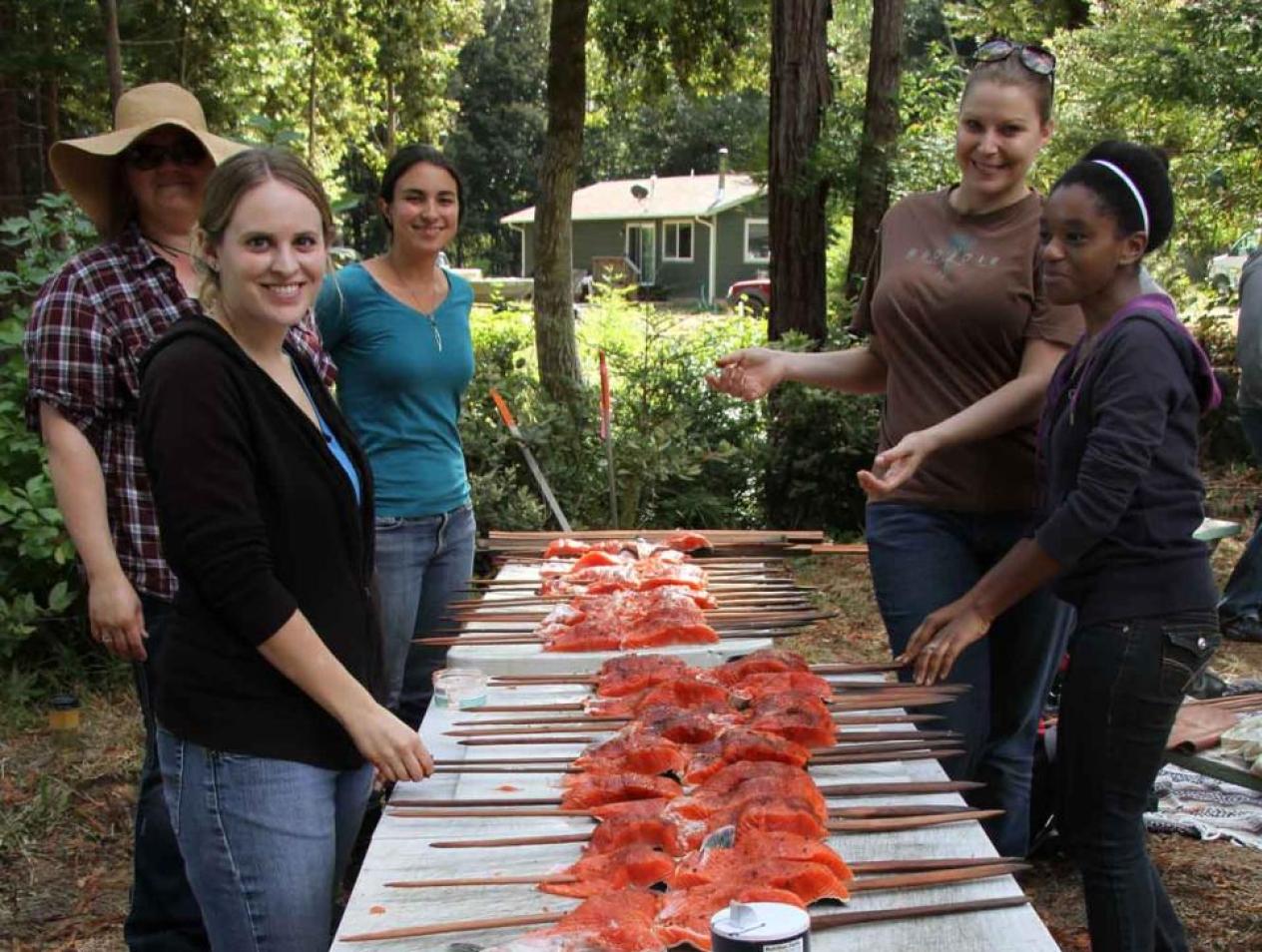Breadcrumb
Rural & Indigenous Emphasis
In consultation with local Tribes, our program curriculum maintains an emphasis on working with Indigenous and rural peoples and is designed to assist our students in decolonizing social work by maintaining a commitment to Tribal sovereignty and the Rights of Indigenous Peoples through acknowledging and respecting the strengths and wisdom of Tribal communities.
Humboldt County is located 250 miles north of San Francisco. The county is densely forested, mountainous, and rural, with 110 miles of coastline. The county contains over 40% of all remaining old growth Redwood forests, the majority of which are protected within dozens of national, state, and local forests and parks, totaling approximately 680,000 acres.
There are 11 federally recognized and unrecognized tribes, rancherias and sovereign tribal governments within Humboldt's service area (Humboldt/Del Norte/Trinity Counties). These include: Big Lagoon Rancheria, Blue Lake Rancheria, Elk Valley Rancheria, Hoopa Valley Tribal Council, Karuk Tribe of California, Resighini Rancheria, Bear River Band of Rohnerville Rancheria, Smith River Rancheria, Tolowa Dee-ni’ Nation, Trinidad Rancheria, Wiyot Tribe and the Yurok Tribe.
Humboldt sits in the northwestern portion of Wiyot ancestral territory. The Department of Social Work respectfully acknowledges the Wiyot people and other Tribal communities on the North Coast and in the Northern California region.
In consultation with local tribal communities, our program curriculum emphasizes working with Indigenous and rural peoples, and is designed to assist our students to engage in "decolonizing social work," which refers to:
- Recognizing that most social work practice approaches and theories in the United States have been developed from “Western” paradigms that, in many cases, are not relevant to, or supportive of, Indigenous Peoples values, beliefs, culture, and rights;
- Privileging and actively supporting the sovereignty, well being, and cultural, spiritual, and land rights of Indigenous Peoples;
- Working with Indigenous communities to implement traditional practices and philosophies in the contemporary context for the purposes of healing and empowerment of the community.
In the words of Waziyatawin and Michael Yellow Bird, "Decolonization is the intelligent, calculated and active resistance to the forces of colonialism that perpetuate the subjugation and/or exploitation of our minds, bodies, and lands, and it is engaged for the ultimate purpose of overturning the colonization structure and realizing Indigenous liberation."
Through Extended Education, we offer SW 420: Decolonizing Social Work with Indigenous Peoples to any interested student or community member for the first 8 weeks of each semester (Fall and Spring). This 1.5 unit class meets the Indigenous Studies prerequisite for MSW Program acceptance.






